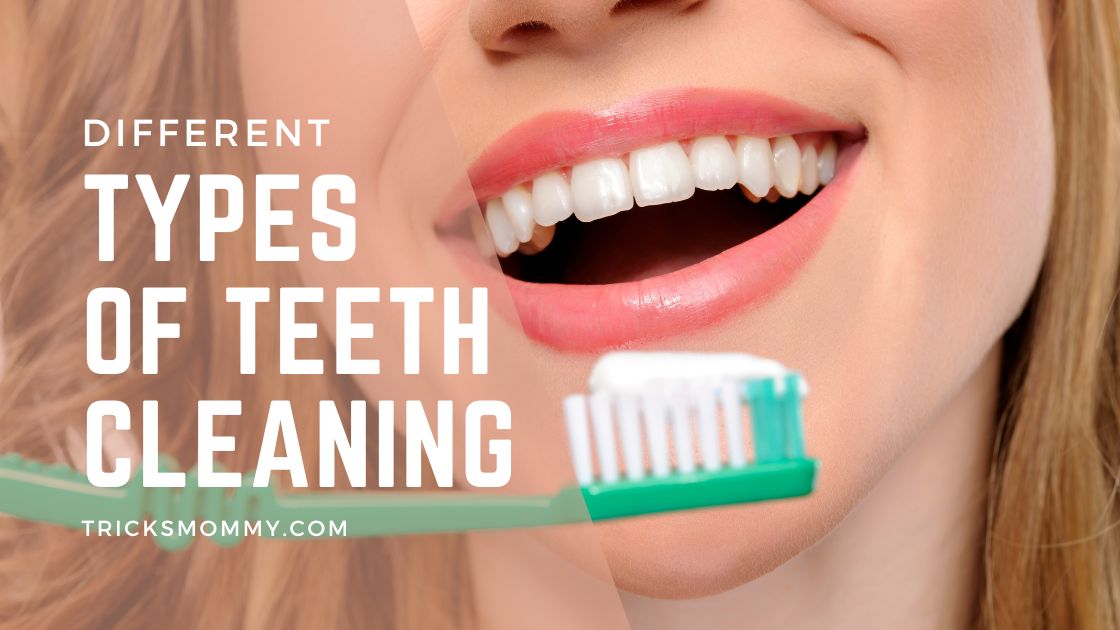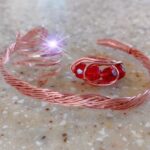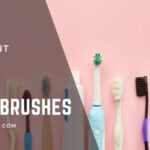What Types of Teeth Cleaning are there?
Dental health is essential, and most likely, we all can agree on that; however, teeth cleaning is often neglected, and of course, there are always horror childhood stories and memories of going to the dentist that doesn’t help at all. If you can relate, we hear you, and as scary as it may sound, we are here to tell you about different types of teeth cleaning.
If you want to make sure your teeth stay healthy, and chances are you do, you must prioritize teeth cleaning. By adopting good teeth cleaning habits, you can ensure there are no serious oral health concerns that develop with your pearly whites.
Get to know different types of teeth cleaning and understand what each teeth cleaning type does and is used for. Remember, clean teeth are healthier, brighter, and function better, and oral hygiene is an essential factor in the overall health of your mouth, teeth, and entire body.
Types of Teeth Cleaning
Solimo Clean Plus Toothbrushes
Solimo Clean Plus Toothbrushes are designed with soft bristles to gently clean all surfaces and reach deep between teeth.
Textured tongue and cheek cleaner remove odor-causing germs. Soft bristles; angled end-tuft to reach back teeth easily and deep between teeth. Easy-grip handle designed for better control.
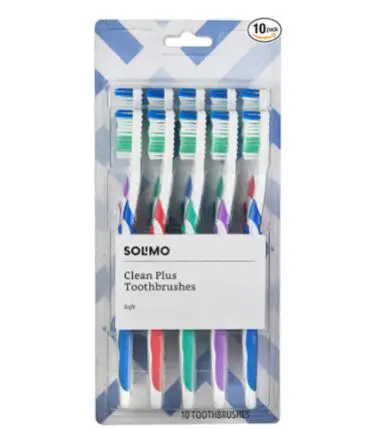
Features:
- Manual
- Soft bristles
Glide Oral-B Pro-Health Deep Clean Floss
Oral-B Glide Pro-Health Deep Clean Floss uses unique technology to deliver deep cleaning power with the extra comfort you’d expect from Glide.
Effectively removes tough plaque between teeth and just below the gum line. Helps prevent gingivitis as part of a complete dental plan.
Up to 90% more micro-textured surface area than Glide Original. It provides a cool, clean feeling every time you floss. Strong and shred resistant with a light coating of natural wax for improved grip.
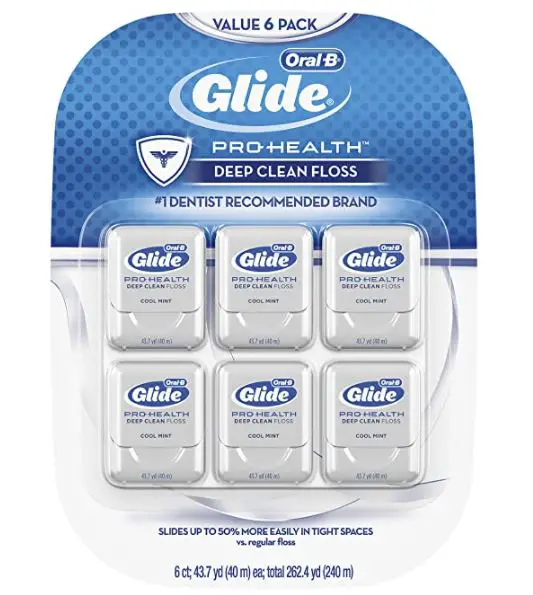
Features:
- Wax material
- Silky smooth
TheraBreath 24-Hour Oral Rinse
Our Fresh Breath Oral Rinse is a dentist-formulated mouthwash that targets sulfur-producing bacteria to help Fight and Breath—clinically proven to be effective for up to 24 hours.
This Icy Mint mouthwash uses clinically proven oxygenating ingredients to help fight the bacteria that cause bad breath odor and stop sour, bitter, and metallic tastes in your mouth.
TheraBreath’s line of dentist-formulated toothpaste, mouthwashes, and other products are designed to help address halitosis, cavity prevention, gum disease, and more.
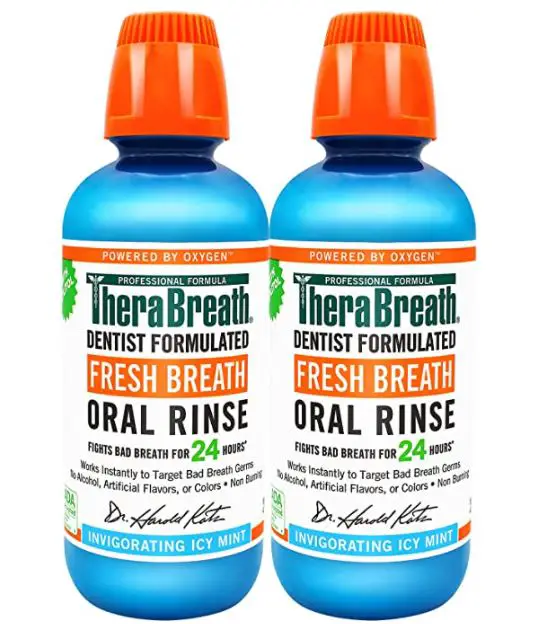
Features:
- Gluten-Free
- Cleanser
- Doesn’t Burn
PUR 100% Xylitol Chewing Gum
This sugar-free gum has a refreshingly icy mint flavor. Keep your mouth feeling fresh with an intense burst of classic wintergreen flavor. Comes in a resealable bag.
It is sweetened with 100% natural xylitol that is sourced from European birch and maple trees.
Make a healthier eating choice. Enjoy PUR’s great-tasting gum without any artificial sweeteners.
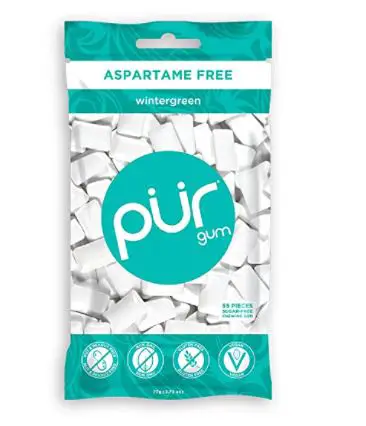
Features:
- Vegan
- non-GMO
- Gluten-Free
Portable Titanium Toothpick
This titanium toothpick and toothpick holder are made from premium grade TC4 titanium material. This material is already widely used in the medical field, guaranteeing our toothpick is reusable, non-toxic, anti-corrosion, and can last a lifetime.
These portable toothpicks and toothpick holders are tied together via a screw mechanism. Rubber O-rings are attached for sealing, and A key ring is attached to the end of the holder. You can stick this metal toothpick anywhere you want.
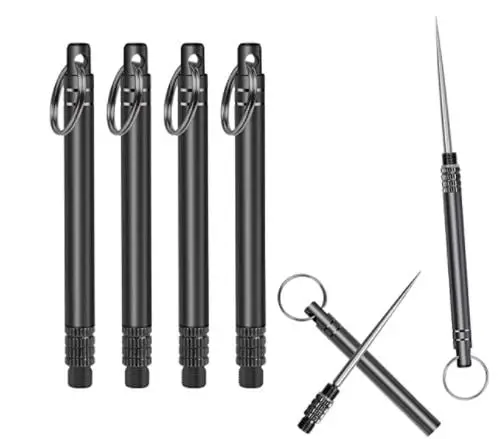
Features:
- Eco-Friendly
- Portable Desing
- Titanium
What are the types of teeth cleaning experts use?
Prophylaxis cleaning
A prophylaxis cleaning is a teeth cleaning procedure mainly used on individuals with an overall healthy mouth. A prophylaxis cleaning is designed to perform routine maintenance, such as removing an expected amount of tartar and plaque from the surface of teeth, gums, and in between teeth.
For those who visit the dentist regularly and practice good oral hygiene, a prophylaxis cleaning is likely the recommended teeth cleaning procedure.
Scaling and root planing
Scaling and root planing is a slightly more invasive tooth cleaning procedure (although it is non-surgical) that involves a deep cleaning the gums, gum line, and other supporting structures of teeth.
Scaling and root planning are often recommended for individuals who suffer from gum diseases such as gingivitis or periodontitis. Since scaling and root planing involve smoothing out the surface of the tooth root and removing any tartar and plaque that exists, it can at times take multiple dental visits to complete.
Gross debridement
If an individual has not visited the dentist in several years, there is likely to be a fair amount of plaque that has built up on the gums, teeth, and in between teeth. Subsequently, a gross debridement, a deep cleaning used to remove tartar and plaque in all areas of the mouth, is often utilized for individuals who have not visited the dentist in a while.
Periodontal maintenance
Periodontal maintenance generally includes frequent visits to the dentist to clean the entire area of the mouth. It is usually performed over a specified amount of time or until all oral health concerns are adequately dealt with and the symptoms of gum disease are managed and entirely under control.
Additional Questions About Types of Teeth Cleaning
Why are there different types of teeth cleaning?
There are different types of teeth cleaning procedures, and the type your dentist is likely to utilize relies heavily upon your specific oral care needs.
What is a deep dental cleaning called?
The official dental term for deep cleaning is periodontal scaling and root planing. You may see this term on your checkout paperwork or any dental insurance forms. We call it a deep cleaning because the procedure involves the removal of bacterial deposits from underneath the gums.
What is the best teeth cleaning method?
According to experts, brushing with an ADA-approved toothpaste is the best way of breaking down plaque, clearing away debris, and killing harmful bacteria all at once.
Regular brushing, at least twice a day as recommended, is necessary to maintain your teeth’ cleanliness. Overall, brushing is the essential method of oral hygiene.
Is a full mouth debridement the same as a deep cleaning?
A full mouth debridement is a super deep cleaning ‘catch up’ session to remove as much of the plaque and tartar as possible, giving your teeth a fresh start to get healthy again.
How can I remove tartar from my teeth without going to the dentist?
You can clean your teeth using baking soda. A mixture of baking soda and salt is an effective home remedy for dental calculus removal. Brushing your teeth with baking soda and salt softens the calculus, making it easy to remove. The mixture should smoothly be scrubbed on the teeth by using a toothbrush.
What are the most effective methods for cleaning teeth?
Among the effective methods most people use daily to clean their teeth we find:
- Toothbrushing. It should come as no surprise that brushing is the most important and most effective way of keeping your teeth clean. Brushing with an ADA-approved toothpaste is the best way of breaking down plaque, clearing away debris, and killing harmful bacteria all at once.
- Dental Floss. Often neglected, dental floss is essential for cleaning the spaces between your teeth where food debris builds up. This debris forms plaque which is harmful to enamel and leads to tooth decay. Floss is one of the easiest and most effective methods of removing this debris.
- Mouthwash. The best thing about mouthwash is that it kills a significant amount of bacteria that could be causing gingivitis or gum disease. This is usually a good thing, but the chemicals in mouthwash can also be detrimental if overused and severely dangerous if swallowed.
- Sugar-Free Gum. Studies show that chewing sugar-free gum after snacks and meals can help neutralize acids caused by bacteria in plaque. These acids are harmful to your enamel and can contribute to tooth decay over time.
- Toothpicks. Cleaning the spaces between your teeth is essential for preventing tooth decay. That’s why toothpicks are still a tool worthy of consideration for oral hygiene. The downside is that they can be too thick sometimes, more uncomfortable, and possibly irritating.

